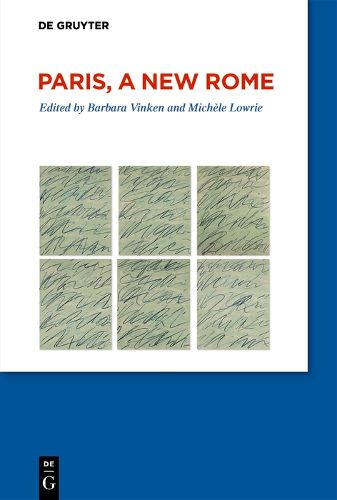Readings Newsletter
Become a Readings Member to make your shopping experience even easier.
Sign in or sign up for free!
You’re not far away from qualifying for FREE standard shipping within Australia
You’ve qualified for FREE standard shipping within Australia
The cart is loading…






However shared the Roman inheritance may be, it hardly unifies. Which Rome is the model, the Republic or the Empire? The Rome of imperial conquest or of civil war? By whom is it ruled? By the glorious conqueror who extended universal peace, the rule of law, and infrastructure - roads and aqueducts - or by the detested tyrant who imposed domination? Or worse, the corruptor of republican liberty and source of putrefying decadence? Rome always returns, but which Rome? France presents itself as a privileged locus for Rome's return since the beginnings of its history. The perennial recourse to ancient Rome - as model or anti-model - binds together a cohesive tradition. The logic of this gesture asserts a unity beyond modern identity politics, which depend on defining a "them" against "us," to resist nativist assumptions about national character, French, German, Italian, American, etc. All share the same polysemous inheritance, for good or ill. All are Roman and all resist Rome without needing to agree on what exactly is shared. The unity underlying the discourse, however, no longer depends on defining Rome as an origin. Instead, Rome's figuration persists discursively, as a translation: to be translated time and time again.
$9.00 standard shipping within Australia
FREE standard shipping within Australia for orders over $100.00
Express & International shipping calculated at checkout
However shared the Roman inheritance may be, it hardly unifies. Which Rome is the model, the Republic or the Empire? The Rome of imperial conquest or of civil war? By whom is it ruled? By the glorious conqueror who extended universal peace, the rule of law, and infrastructure - roads and aqueducts - or by the detested tyrant who imposed domination? Or worse, the corruptor of republican liberty and source of putrefying decadence? Rome always returns, but which Rome? France presents itself as a privileged locus for Rome's return since the beginnings of its history. The perennial recourse to ancient Rome - as model or anti-model - binds together a cohesive tradition. The logic of this gesture asserts a unity beyond modern identity politics, which depend on defining a "them" against "us," to resist nativist assumptions about national character, French, German, Italian, American, etc. All share the same polysemous inheritance, for good or ill. All are Roman and all resist Rome without needing to agree on what exactly is shared. The unity underlying the discourse, however, no longer depends on defining Rome as an origin. Instead, Rome's figuration persists discursively, as a translation: to be translated time and time again.